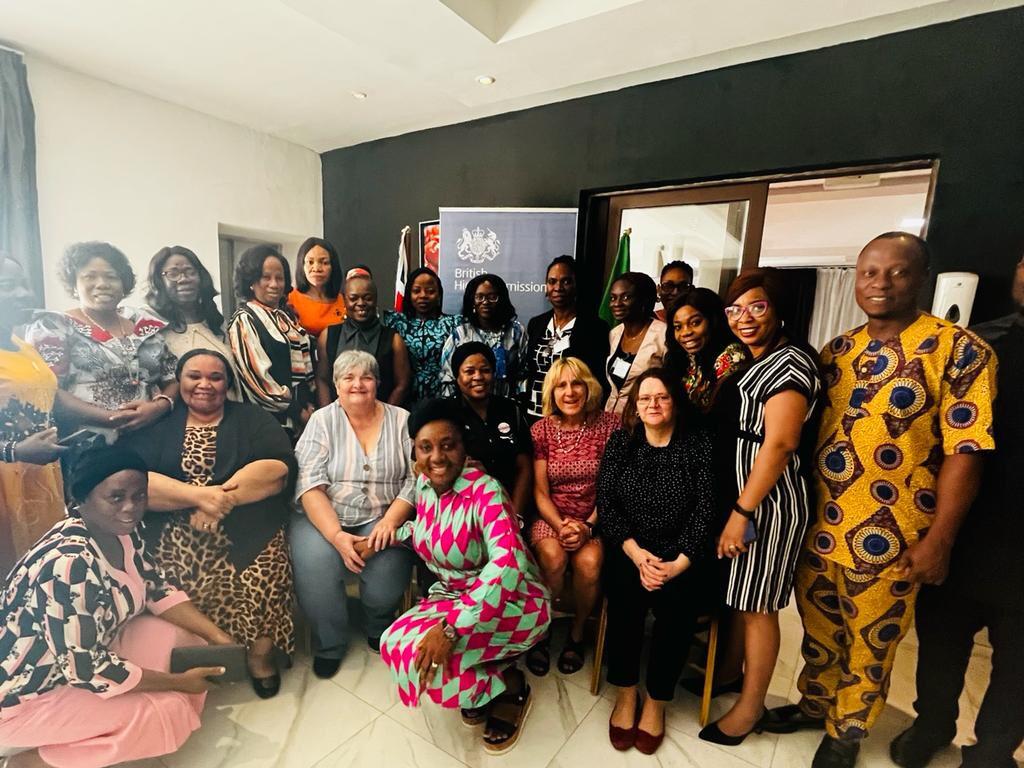Mukaila Ola
United Kingdom government has held training workshops for all 33 Sexual Assault Referral Centres (SARCs) and their main stakeholders in Nigeria to help talk about Sexual and Gender-Based Violence in the country.
The workshops which held between 28 February and 4 March, were developed to offer critical support to SARCs who provide vital assistance and forensic and medical services to children, young people, women, and men who have been sexually abused, assaulted or raped. SARCs also support police and prosecution responses to crimes of sexual violence, abuse and exploitation.
A signed statement by the Press & Public Affairs Officer, Comms Lead, Prosperity and Economic Development, Foreign Commonwealth and Development Office, Ndidiamaka Eze said 33 SARC managers and stakeholders at both state and federal level participated in the workshops. This included officials from Ministry of Justice, Ministry of Women’s Affairs, the National Agency for the Prohibition of Trafficking in Persons (NAPTIP), Ministry of Health, the Nigerian Police Force, as well as staff from hospitals. NGOs including Women Advocates Research and Documentation Centre (WARDC), International Federation of Women Lawyers, Nigeria (FIDA), Nigerian Civil Defence Corps, and UN Women also joined the workshops.
She said: “The workshops were organised by the Consular Section of the British High Commission in Abuja (BHC) and the British Deputy High Commission in Lagos (DBHC). They were paid for through the Foreign, Commonwealth & Development (FCDO’s) Consular Project Fund (CPF), in collaboration with the British Council, who supported the BHC in the preparation of these workshops. The workshops were delivered by visiting field experts, Alison Eaton, a senior retired UK Police Officer and International Sexual and Gender Based Violence (SGBV) expert, and Dr Isabelle Kerr, former Centre Manager of Glasgow & Clyde Rape Crisis in Scotland. The workshops complemented the work being done through the EU Rule of Law and Anti-Corruption (RoLAC) and Managing Conflict (MCN) programmes implemented by the British Council.”
She disclosed that during the workshops, Alison Eaton and Dr Isabelle Kerr shared outcomes from findings from their recently completed SARCs baseline assessments, coordinated by Consular Section to map SARC services across Nigeria with the aim of improving practice, increasing resources and ensuring improved access to SARCs for survivors across the country. The presenters facilitated the discussion and consultation among SARCs and stakeholders to identify areas of good practice, highlight challenges and gaps in service with a view to standardise practice across the country.
During the workshops, Dr Isabelle Kerr said: “The level of commitment and passion shown by managers and staff within SARCs is enormous and shows how the grit and determination of those who believe in survivor justice and wellbeing can achieve so much. State and government investment in policy and strategic direction for this work is crucial but we must not forget or ignore the frontline services that are being delivered by small, dedicated teams under sometimes challenging and under-resourced conditions. Both Alison and I were honoured to be asked to contribute our years of experience to this work.”
The British High Commissioner to Nigeria, Catriona Laing who quoted to have said:
“It is incredibly encouraging to see how much work is being done to provide accessible services to survivors of rape and Sexual and Gender Based Violence in Nigeria. We were delighted to welcome Alison Eaton and Dr Kerr from the UK to build on this. Thank you to the British Council for the support they have offered to help to set up these workshops for us.
“Preventing sexual violence is a really important issue for me and for the UK government. The UK Foreign Secretary, Liz Truss, has put this at the absolute top of her priorities. And I am mandated to really engage and lean in on this to support efforts to ensure that all women are given a genuine chance to realise their potential and gain the support they need to do so.”
She said these workshops organised by the BHC and funded by the FCDO will complement the current support that the British Council are providing to SARCs through their The Rule of Law and Anti-Corruption (RoLAC) programme and their Managing Conflict in Nigeria (MCN) programmes. RoLAC is concluding a 7-month intervention that will feed into the design of the European Union’s continued support to SARCs under RoLAC’s successor.

